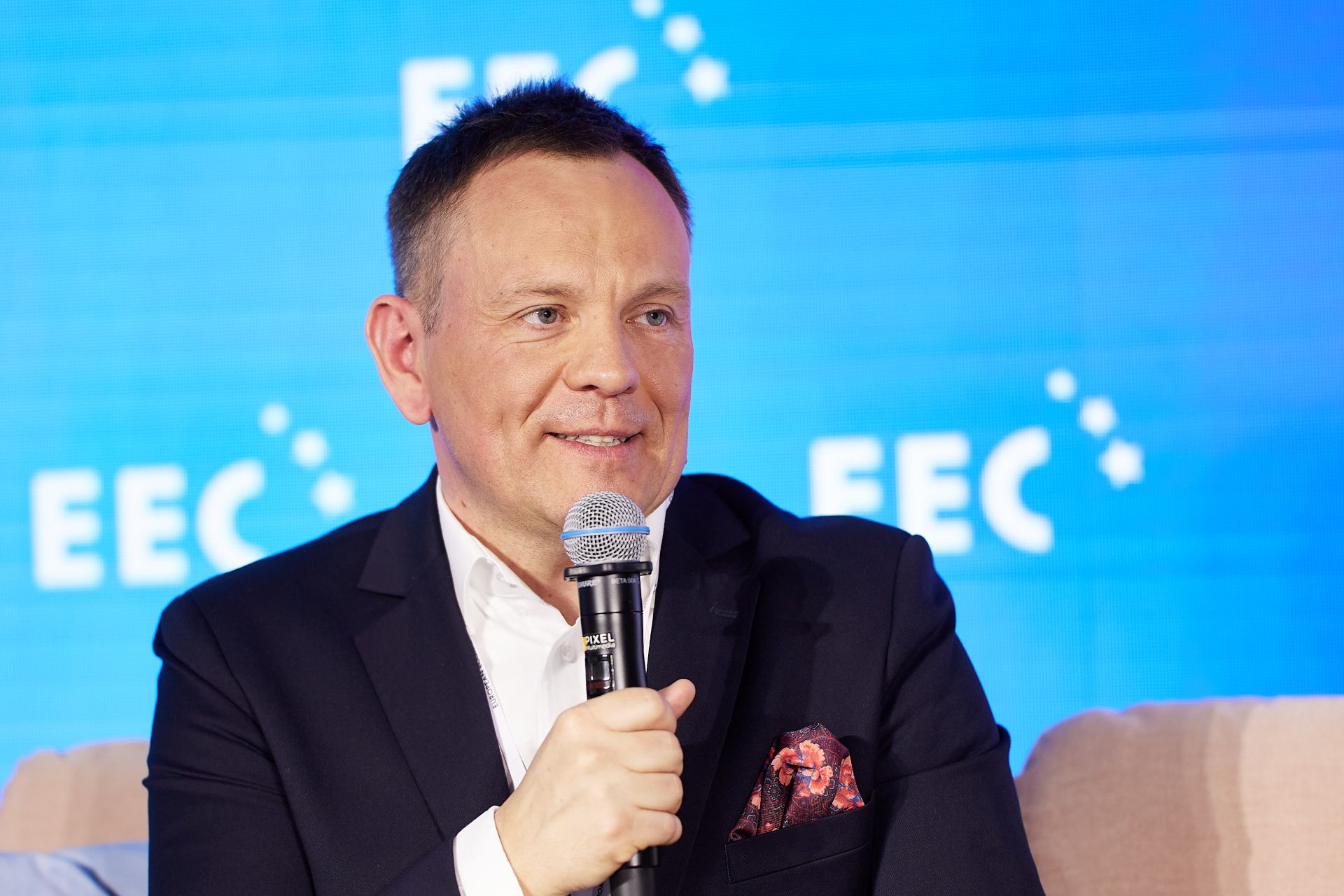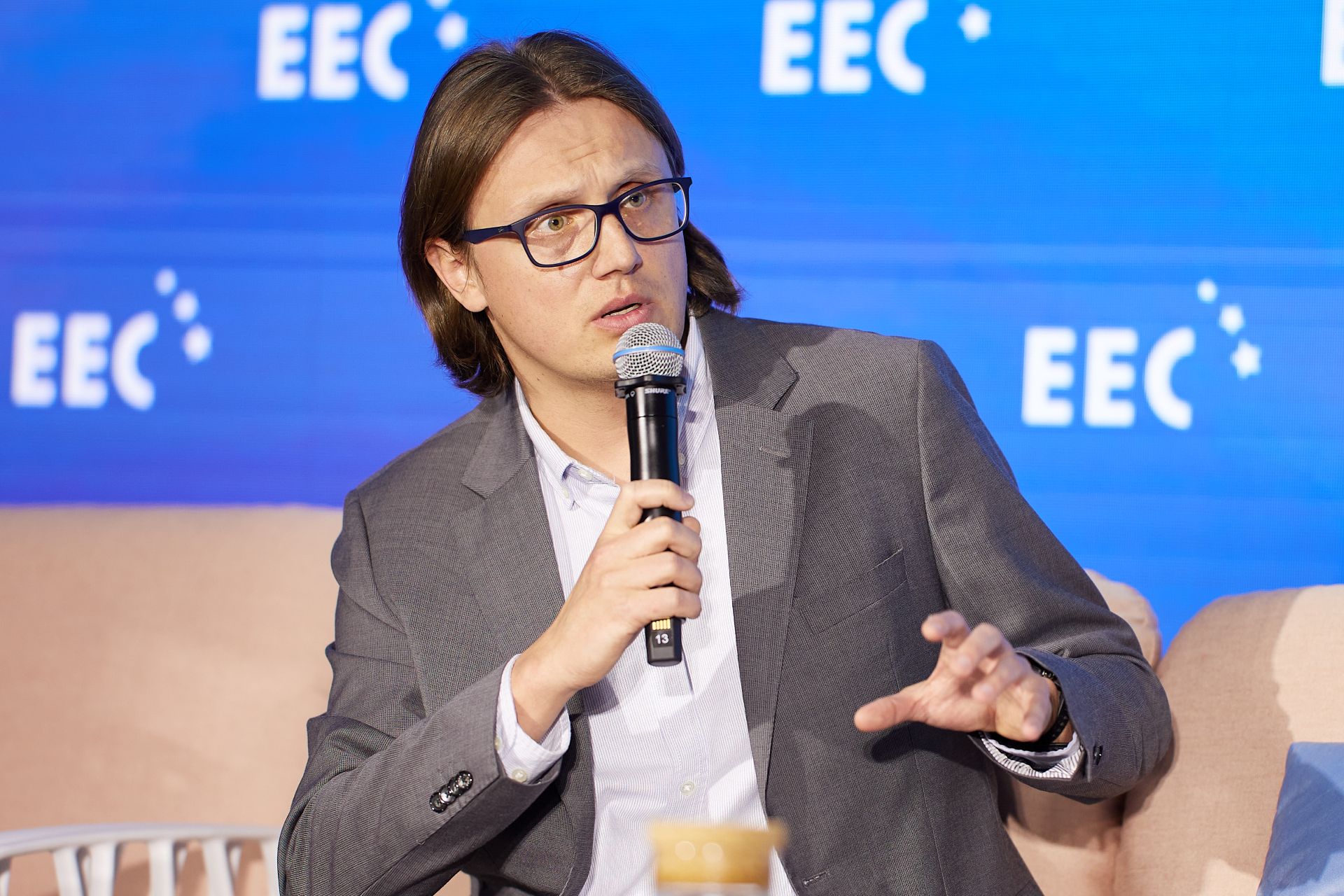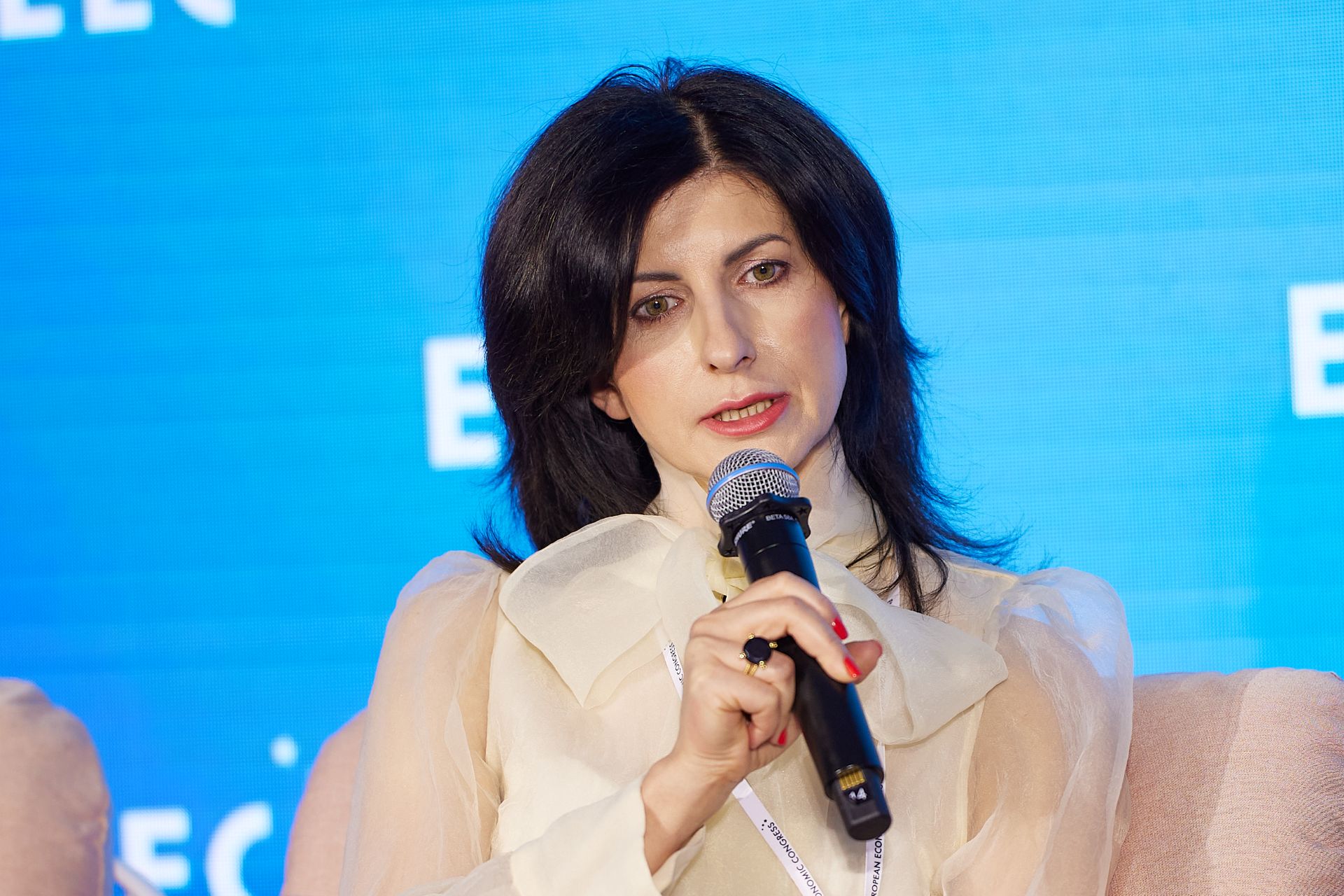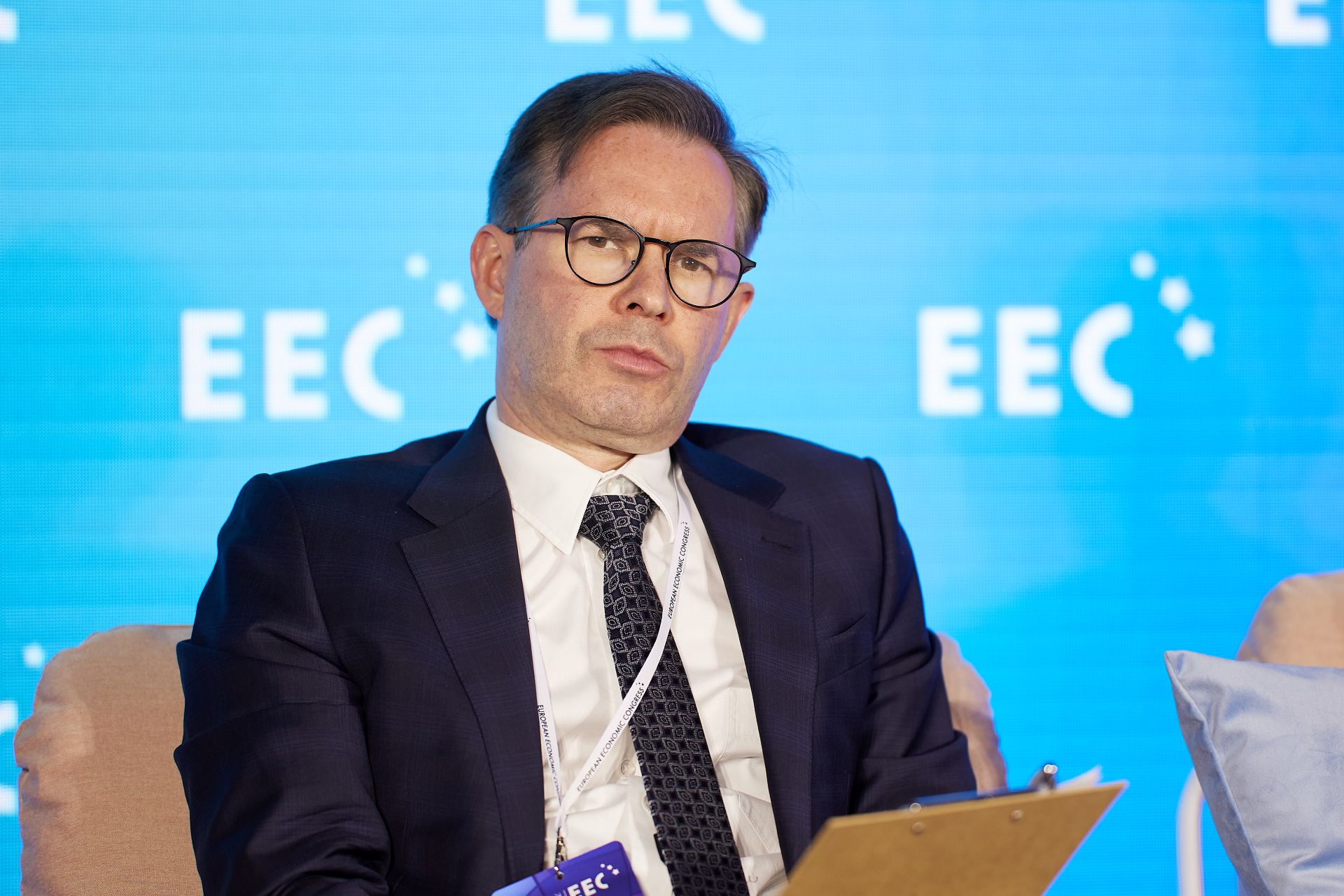Private investors in Poland lack courage, but also incentives

- - If at least a part of the tax paid by KGHM on extracted minerals (almost PLN 30 billion in total) was allocated by the company to innovations, its position on the market would be completely different today - said Barbara Juszczyk, director of the Łukasiewicz Institute - IMN, Łukasiewicz Research Network, participating in the debate " Financing innovation " during the European Economic Congress in Katowice .
- In turn, Michał Chomczyk, deputy director of the Strategic Management Department at the National Centre for Research and Development (NCBR), pointed out that the aim of innovation is to increase the market advantages of enterprises, which translates into higher economic growth in the country and is beneficial for the state, which is why the state should engage public funds in this development.
- Katarzyna Stabińska, an attorney and a lawyer at Ślązak, Zapiór i Partnerzy - Law Firm, pointed out that recent events in the world have changed priorities and the existing rules on the investment market. - Previously, funds were prohibited from financing investments related to the military, now these prohibitions are being lifted - she gave an example.
The global situation has changed investors' approach to research and innovation, global emphasis has shifted towards the security and self-sufficiency of individual countries.

- In the East we have a hybrid war, in the West a trade war. In the face of these events, priorities, which is today's innovation, have changed - admitted Leszek Stypułkowski, a member of the board of Bank Gospodarstwa Krajowego, who participated in the debate "Investment financing" during the EEC.
He added that it takes time to implement any innovations, whereas in the process of arming ourselves we have focused on ready-made solutions.
We lack strategies for which projects we develop. We need to build self-sufficiency in areas that are strategic for us – Stypułkowski emphasized.
According to the speaker, Polish start-ups develop only to a certain point (i.e. at the stages when financing is provided by the state or the European Union), and then there is no space for further development, because there is no financing for subsequent stages or an ecosystem of recipients who could implement and scale a given innovation.
"We must develop technologies that are strategic for the economy." Which ones?In turn, Marcin Seniuk, director of the Startup Development Department at the Polish Agency for Enterprise Development, pointed out that there is no country or economy that could realize full technological sovereignty through the connections that currently exist in the world.

We need to develop these technologies that are of strategic importance for the economy and our security. This is a process and a path. The state supports and directs development and secures selected technologies – Seniuk emphasized.
Michał Chomczyk, deputy director of the Strategic Management Department at the National Centre for Research and Development (NCBR), pointed out that the aim of innovation is to increase the market advantages of enterprises , which translates into higher economic growth in the country and is beneficial for the state, which is why the state should financially support such development.

He also informed about a new NCBR initiative: the Strategic Technologies Platform for Europe (STEP).
The idea is to support and increase the competitiveness of the European Union and to become independent from supplies from China and the USA, Chomczyk recalled and added that the program's budget is PLN 1.5 billion.
He also pointed out that the role of the state in building and developing innovation is positive. - Research and development projects are burdened with high risk, business does not always want to take this risk - he noted and added that Poland lacks an ecosystem of financing innovation, there is no close cooperation, vision, everyone does projects independently.
17th European Economic Congress
A different perspective on financing innovation was presented by the director of the Łukasiewicz Institute – IMN, Łukasiewicz Research Network Barbara Juszczyk . As a scientist, she recalled that a decade ago, certain investments were global in nature, part of global value chains or market integration.

Recent geopolitical events have shown that technological sovereignty must be built in the area of national security. However, there is no security without raw material security, and Europe is quite poor in this respect, Juszczyk noted.
For example, the elements needed for the military industry are outside the geographical reach of Europe – such as cobalt, the largest resources of which are located in Congo (and owned by China), or germanium, 3/4 of which is also imported from China (germanium glass for drones is produced from it, among other things). Juszczyk pointed out that there are financial, systemic and competence barriers when it comes to financing innovation in Poland. The costs of implementing innovations are also very high.
- The most innovative companies are in the services sector, but there is a lack of large-scale industrial innovations. There are no incentives for entrepreneurs. For example, KGHM pays PLN 3 billion in mineral tax annually, which has amounted to PLN 27 billion since the introduction of this tax. If at least some of these funds were allocated to innovation, the company would be in a completely different position today - said Juszczyk.
Wars and pandemics have changed the investment market and its rules.Artur Rudnicki from the European Investment Bank jokingly recalled that it is not known what would have happened to Nicolaus Copernicus if it had not been for his wealthy uncle who sponsored his research and believed in him.

According to him, Europe should follow the American solutions and unify the financial services market. In his opinion, Poland has nothing to be ashamed of compared to the rest of Europe, because over the course of 20 years we have built a well-functioning system and we are a leader in terms of using EU funds, and the level of their fraud is marginal.
Rudnicki also drew attention to staffing gaps, the lack of professional teams assessing projects, as well as the great distrust of citizens towards the capital market.
Katarzyna Stabińska, attorney and legal adviser at Ślązak, Zapiór i Partnerzy - Law Firm of Attorneys and Legal Advisers , also contributed interesting observations to the discussion.
She recalled that investments were frozen during the Covid-19 pandemic. Then there was a rebound, and then - due to international conflicts - another slowdown.

- The war in Ukraine has changed the approach to examining the risks that investors take into account. In international transactions, it is verified whether a given entity is subject to sanctions. Investors are also increasingly looking for dual-use technologies. Previously, funds were prohibited from financing investments that were related to the military, now these prohibitions are being lifted - the lawyer noted.
wnp.pl





